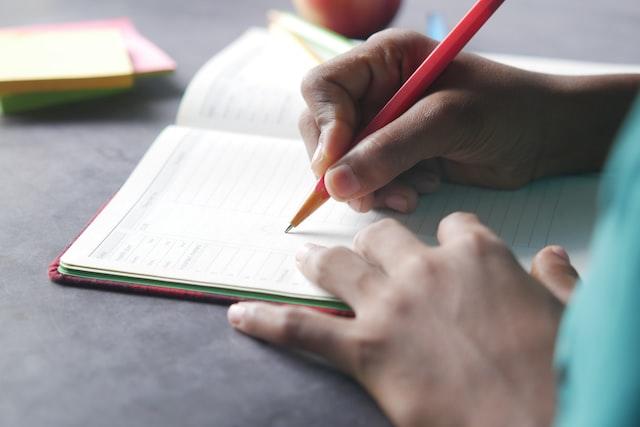Have you ever questioned a question that you have come across in an examination?
Let's take it another step further.
Have you ever questioned the final marks that you get after the exam is over?
If you have answered "YES" to both of these questions, then you are at the right place.
When it comes to a large-scale globalised language test like the Test of Proficiency in Korean (TOPIK), it is extremely important to not only know how you are graded and how to get the highest grade in the most effective manner.
That's why in this article, we will go through the methods to score well for the tested components in your TOPIK I and TOPIK II papers.

How Long Should You Learn Korean Before Sitting For The TOPIK I?
We will begin by tackling TOPIK I.
TOPIK I is basically catered to those who are learning the Korean language for the first time and those who are not in a major rush to study or work in a 100% Korean environment.
The total score for TOPIK I is 200 points and only two components will be tested (as of 2022) namely the listening component and the reading component.
The listening component has 30 questions whereas the reading component has 40 questions.
Here are some Korean learning checklists that you should look at before registering for the TOPIK I.
# 1: You have completely mastered the Hangeul system
This includes identifying all the vowels and consonants, the right way to write the letters, the right way to pronounce the syllables and how to write the vowel and combination side by side (to form syllables).
This step is the most important step to kickstart your Korean learning journey successfully because the Hangeul alphabet sets the foundation for your reading and listening skills.

Photo by sq lim on Unsplash
# 2: You are familiar with the most commonly used Korean adjectives and the Korean verbs in your everyday life
An extensive vocabulary plays an essential role to enhance your Korean language comprehension skill. This will enable you to quickly understand the text that you are reading and listening to and correctly answer the various question types that will be asked in your TOPIK I papers.
# 3: You are well versed in the basic grammar structures that will be covered in your TOPIK I papers.
To fully understand Korean texts and sentences, you also need to differentiate various grammar structures in order to correctly use them in your conversations and writings later on.
Some of the Korean grammar rules that you need to learn include:
- Honorific expressions
- Tenses
- Negative expressions
- Particles
- Conditions and suppositions
- Making requests and assisting and many more
Instead of fixating on a specific learning duration, we highly recommend you to track your Korean learning progress according to these three checklists before you take on the TOPIK I papers.
Explore the ways to be an advanced learner of the Korean language by getting a high score for TOPIK II.
What Do The Overall Scores For TOPIK II Imply And Why Is It Relevant To You?
For those of you who have sat for TOPIK I and are now considering taking the TOPIK II papers, continue reading this paragraph to learn more about the evaluation difference of this paper.
The full score for TOPIK II is 300 points and candidates will be tested on another component which is the writing component.
| Tested Components | Question Types | Number of Questions | Points |
|---|---|---|---|
| Listening | Multiple choice questions | 50 | 100 |
| Writing | Short answer questions and essays | 4 ( 2 short questions, 2 essays) | 100 |
| Reading | Multiple choice questions | 50 | 100 |
Let's go through the four score levels of TOPIK II in the list below.
TOPIK II Level Three [Passing mark: Over 120 points]
- Candidates must be able to perform basic linguistic functions when they are utilizing various public facilities and maintain social relationships without experiencing significant difficulty in routine life.
- Candidates must be able to express or understand social subjects familiar to himself/herself and specific subjects based on paragraphs. They must also be able to understand, and use written and spoken language according to their distinctive basic characteristics.
TOPIK II Level Four [Passing mark: Over 150 points]
- Candidates must be able to perform linguistic functions necessary to use various public facilities and maintain social relationships, and carry out these functions to some degree which is necessary for the performance of ordinary tasks.
- Candidates must be able to use various public facilities, socialize, and carry out some degree of ordinary work.
- Candidates must also be able to understand easy parts in news broadcasts, and newspapers, and understand and use expressions related to social and abstract subjects relatively correctly and fluently.
- Candidates must be able to understand social and cultural subjects, based on the understanding of Korean culture and frequently used idiomatic expressions.
TOPIK II Level Five [Passing mark: Over 190 points]
- Candidates must be able to perform linguistic functions to some degree that are necessary for research and tasks in professional fields.
- Candidates must be able to understand and use expressions related to even unfamiliar aspects of politics, economics, society, and culture. Able to use expressions properly, depending on formal, informal, spoken/written context.
TOPIK II Level Six [Passing mark: Over 230 points]
- Candidates must be able to perform linguistic functions necessary for research and tasks in professional fields relatively correctly and fluently.
- Candidates must be able to understand and use expressions related to even unfamiliar subjects of politics, economics, society, and culture. Furthermore, they must experience no difficulty in performing functions or conveying meaning, although their proficiency level is not quite at the same level as a university-educated native speaker.

Photo by LYCS Architecture on Unsplash
Reviewing the score levels for TOPIK II is super important because it is a directly applied indicator of your Korean language proficiency level if you are planning to study, work or migrate to Korea one day.
For example, you'll need at least a TOPIK Level 3 to successfully apply for an undergraduate programme in South Korea or work in a Korean-based company.

How To Improve Your Reading and Listening Component For TOPIK I and TOPIK II?
Now that you have read about the format of TOPIK I and II and what you should cover before registering for your papers, here are some tips to help you score well for the reading and listening components.
Tip 1: Make your own sample sentences with various verbs and adjectives
The best way to remember new Korean words better is to directly apply them in your daily life. You can make sentences based on various tenses such as present tense, past tense, and future tenses, or use them in imperative expressions, or other contexts.
Verb: To eat (먹다 meok-da)
I want to eat ice cream: 아이스크림 먹고싶다
I can eat ice cream: 아이스크림을 먹을 수 있어요.
Tip 2: Consume a variety of Korean content (news, podcasts, Korean dramas etc)
There are so many ways to learn and enjoy Korean. We are pretty sure many of you who are reading this article can relate when we talk about the abundance of Korean media around us today.
From the OG Korean dramas like Autumn in my Heart and Full House to the most popular Korean dramas hit in recent years like Squid Game, Hospital Playlist and Extraordinary Attorney Woo, Korean variety shows like Running Man, 2 Days 1 Night, Yoo Quiz on the Block and the ever-evolving world of K-pop, the Korean content around us has come a long way.
Watching these contents will help you to be familiar with the correct pronunciation and speaking tone of various phrases and new vocabulary too, which will be helpful in the listening and reading component of your TOPIK papers.
Tip 3: Practice doing lots of past-year questions
Don't forget that you are in fact, preparing for a language-based examination. To build confidence and competence, you have no choice but to practice, practice and practice!
When you practice with past-year questions, you can sort of anticipate the questioning pattern of your actual TOPIK papers and give out the correct answers in a swift manner.
To have an in-depth study of what it takes to tackle your TOPIK I, read this to master the tips to score for your TOPIK I.
How To Score Well For Your Writing Component In TOPIK II?
To many candidates who are preparing for their TOPIK II paper, the writing component can be quite tricky. After all, it is a 100% subjective section and it has specific marking criteria that look at your content and task execution, development of structure and usage of language.
We got you covered for some practical tips to ace your writing component.
Tip 1: Start a diary or journal to record your everyday life
The key is to get yourself to put down your thoughts and what you have learnt on paper. This practice encourages you to identify the subject, predicates, right grammar structures and tenses as you write. Furthermore, you can also see clearly if you have any spelling or spacing mistakes in between.

Photo by Towfiqu barbhuiya on Unsplash
Tip 2: Study the sentence structures of Korean news articles
To write well, you got to read well. Reading news in Korean will help you to improve your grammar structures and sentence formation when you are answering longer essay questions for your TOPIK II paper.
Tip 3: Memorize new words and sample sentences from a Korean dictionary
Again, do not underestimate the power of building your vocabulary. The most practical way to look up new words and solid sample sentences? A bilingual Korean dictionary.
Trust us, it does wonders!
Made up your mind to register for TOPIK in Malaysia? Don't miss this amazing guide to learn more about the steps to successfully sit and ace this Korean language proficiency examination.
Where Can You Find A Good Private Tutor For Your TOPIK Preparation?
When it comes to finding the perfect Korean language tutor, online or face-to-face, Superprof got you covered!
Superprof is an effective platform that connects passionate learners and dedicated tutors in the most flexible and student-friendly manner!
All you need to do is head to the Superprof Malaysia homepage and start browsing the tutors' profiles to pick a tutor that fits all your criteria.
You can find out the following details from the tutors' profiles such as:
- Their teaching experience
- Their teaching methodology
- Their current profession apart from teaching
- Their hourly rate
- Their teaching mode (physical/online)
- Review from their previous students
From there, you can then contact your desired Superprof Korean tutor to discuss more about your future TOPIK preparation lessons.
We hope you have gained some insights about the grading scheme and tips to score well for your TOPIK papers through this article. You can also read more on the examination format and syllabus scope for both of your TOPIK papers here.















